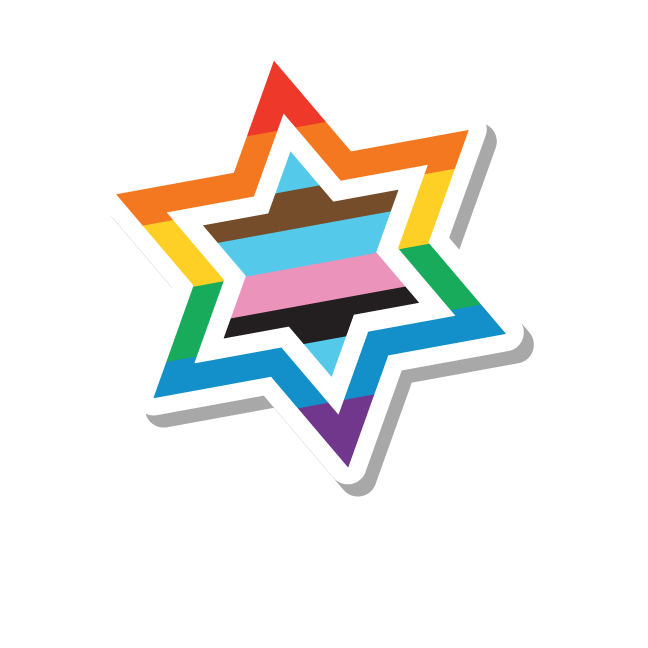Honoring Queer Ushpizin (spiritual ancestors)
Honoring queer ushpizin—spiritual ancestors—in the Sukkah is a meaningful way to celebrate diversity and inclusion during Sukkot. Here are some resources and activities to use during Sukkot:
Resources
Ushpizin Profiles:
Create profiles of queer historical and contemporary figures from Jewish history or culture. Talk about how they inspire you.
Examples:
Leonard Cohen: The iconic singer-songwriter often explored themes of love, loss, and spirituality in his work, reflecting complex aspects of his identity.
Bayard Rustin: A civil rights leader and organizer of the 1963 March on Washington, Rustin was openly gay and played a pivotal role in advocating for social justice.
Emma Lazarus: A poet known for her sonnet “The New Colossus,” Lazarus was an early advocate for Jewish immigrants and has been suggested to have had queer relationships.
Lillian Hellman: A prominent playwright and screenwriter, Hellman was openly bisexual and had relationships with both men and women throughout her life.
Daniel Mendelsohn: A contemporary writer and critic, Mendelsohn’s works often reflect on his Jewish heritage and queer identity, merging personal and cultural narratives.
Hannah Arendt: A political theorist, Arendt had relationships with women and is known for her profound insights into power, totalitarianism, and the human condition.
Moshe Dayan: While primarily known as an Israeli military leader, Dayan's relationships with men have been discussed in the context of his complex personal life.
Marjorie Agosín: A Chilean-American poet and human rights activist, Agosín explores themes of identity, belonging, and memory in her work, often reflecting on her Jewish heritage.
Queer Texts and Blessings:
Consider writing your own blessings to honor the spirits of those who paved the way for queer representation.
Use or modify these blessings:
1. Blessing for Inclusion
Blessed are You, Source of All Being,
who embraces every heart and spirit.
May this Sukkah be a sanctuary
where all identities are welcomed,
and love is boundless. Amen.
2. Blessing for Community
Blessed are You, Creator of Connection,
who weaves together the fabric of our lives.
As we gather in this Sukkah,
may we celebrate our differences,
finding strength in our unity. Amen.
3. Blessing for Remembrance
Blessed are You, Eternal One,
who guides us through the shadows of history.
We honor our queer ancestors,
who paved the way with courage and love,
and whose spirits continue to inspire us. Amen.
4. Blessing for Love
Blessed are You, Love Itself,
who fills our hearts with joy and compassion.
May our relationships be a reflection of Your light,
and may we honor the love in all its forms. Amen.
5. Blessing for Identity
Blessed are You, Creator of Diversity,
who made each of us unique and beautiful.
May we embrace our true selves,
celebrating the richness of our identities
in this sacred space. Amen.
6. Blessing for Joy
Blessed are You, Source of Joy,
who brings laughter and light into our lives.
As we share in this Sukkah,
may our spirits be lifted,
and our hearts be open to joy. Amen.
Artistic Displays:
Use art to honor LGBTQ+ experiences, ancestors, creativity etc. Invite participants to make artwork, or do creative writing that reflects both experiences or inspirations as well as expressions of support
Activities
Storytelling Circle:
Invite participants to share stories about queer figures who have influenced their lives or experiences.
Decorating the Sukkah:
Use rainbow colors, symbols of pride, or imagery that represents queer identity to decorate the Sukkah. Incorporate personal items or photos that honor queer ancestors.
Prayer Flags:
Create prayer flags or fabric squares, each representing a queer ancestor. Decorate them with names, symbols, or quotes, and hang them in the Sukkah.
Gratitude Tree:
Set up a gratitude tree where participants can write messages of thanks to their ancestors - queer or otherwise. These can be displayed in the Sukkah for everyone to see.
Final Touches
Inclusivity in Language: Use inclusive language that resonates with diverse identities. This includes things like caregivers or parents rather than mother and father or using “they” when you don’t know someone’s pronouns and not assuming everyone present is Jewish or straight or cisgender (aligned with the sex they were assigned at birth)
Reflection Space: Create a quiet space within the Sukkah for contemplation and personal reflection on the contributions of all ancestors.
Community Engagement: Involve your community in the planning and execution of these activities to foster a sense of belonging and shared purpose.
Enjoy creating a Sukkah that honors the rich tapestry of queer experiences and contributions and know that by doing so, you are fostering a spirit of inclusion and celebration.
SOJOURN's Case for Support provides a detailed overview of our programs and impact, delivered through a storybook format. See the end for a useful glossary of terms!

